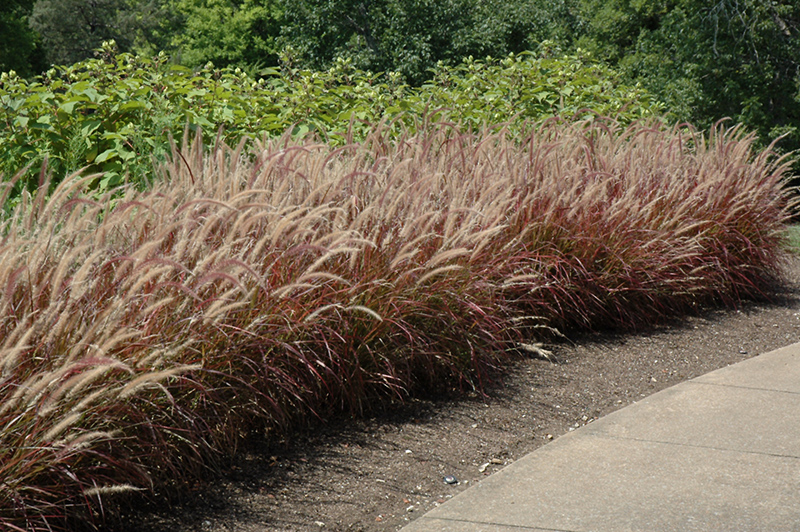
Purple Fountain Grass (Pennisetum setaceum 'Rubrum') in Long Island Westbury Nassau County
Pennisetum x advena 'Rubrum' With its deep purple leaves and long, colorful flower spikes, purple fountain grass is among the loveliest of the ornamental grasses. Alas, its beauty is fleeting. Hardy in Zones 9 to 11, P. x advena 'Rubrum' is grown as an annual in most of the United States.
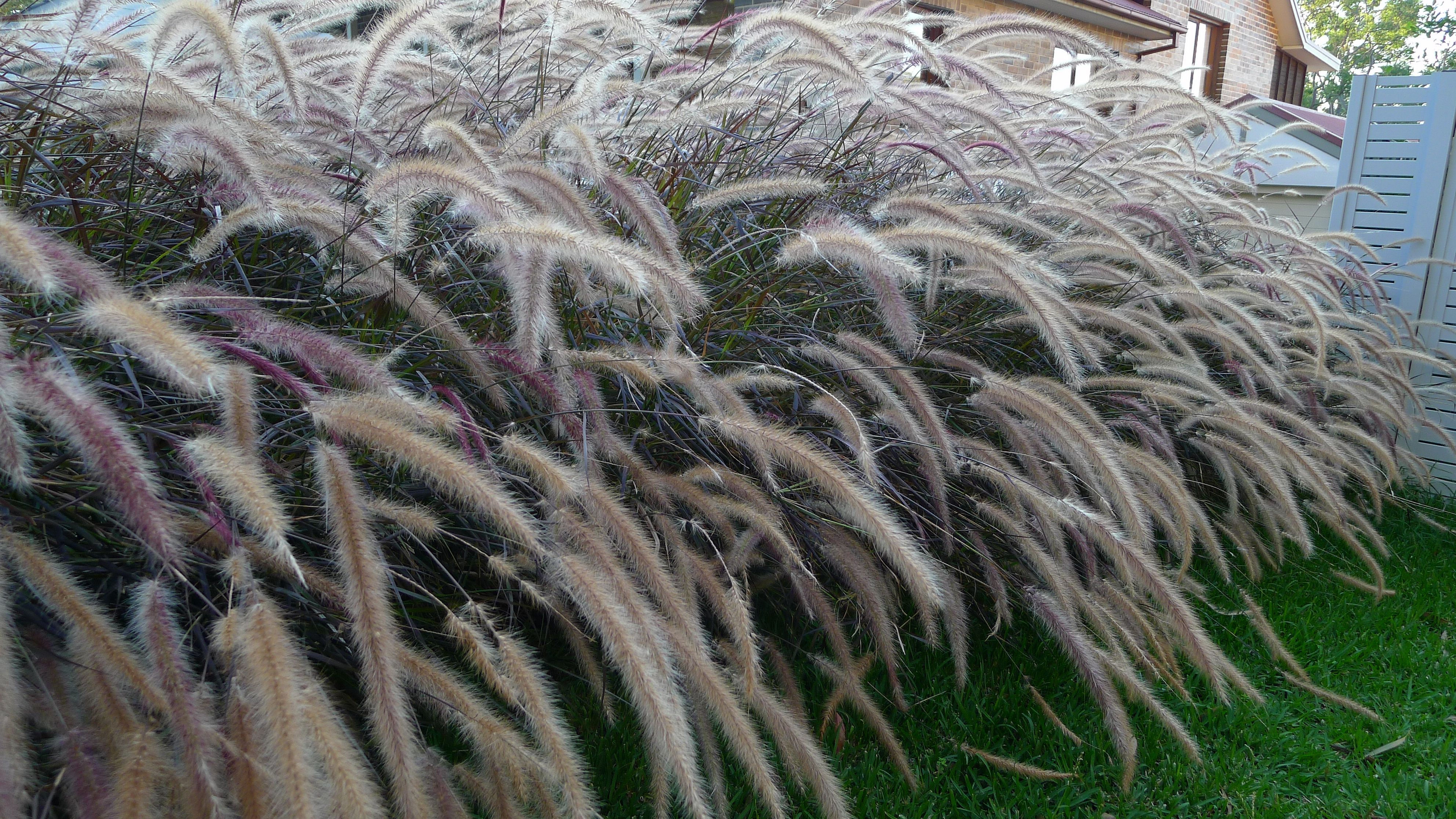
Buy Pennisetum advena 'Rubrum' (Purple Fountain Grass), Brisbane Toowoomba Gold Coast
Fast grower, Purple Fountain Grass typically grows in 3-5 ft. tall (90-150 cm) and 2-4 ft. wide (60-120 cm) rounded mounds. They are topped with soft, fluffy, red-burgundy flower plumes on arching stems from mid-summer until frost. Quite long - over 1 ft. (30 cm), the purplish flower spikes are succeeded by burgundy or purplish-tinged seed heads.
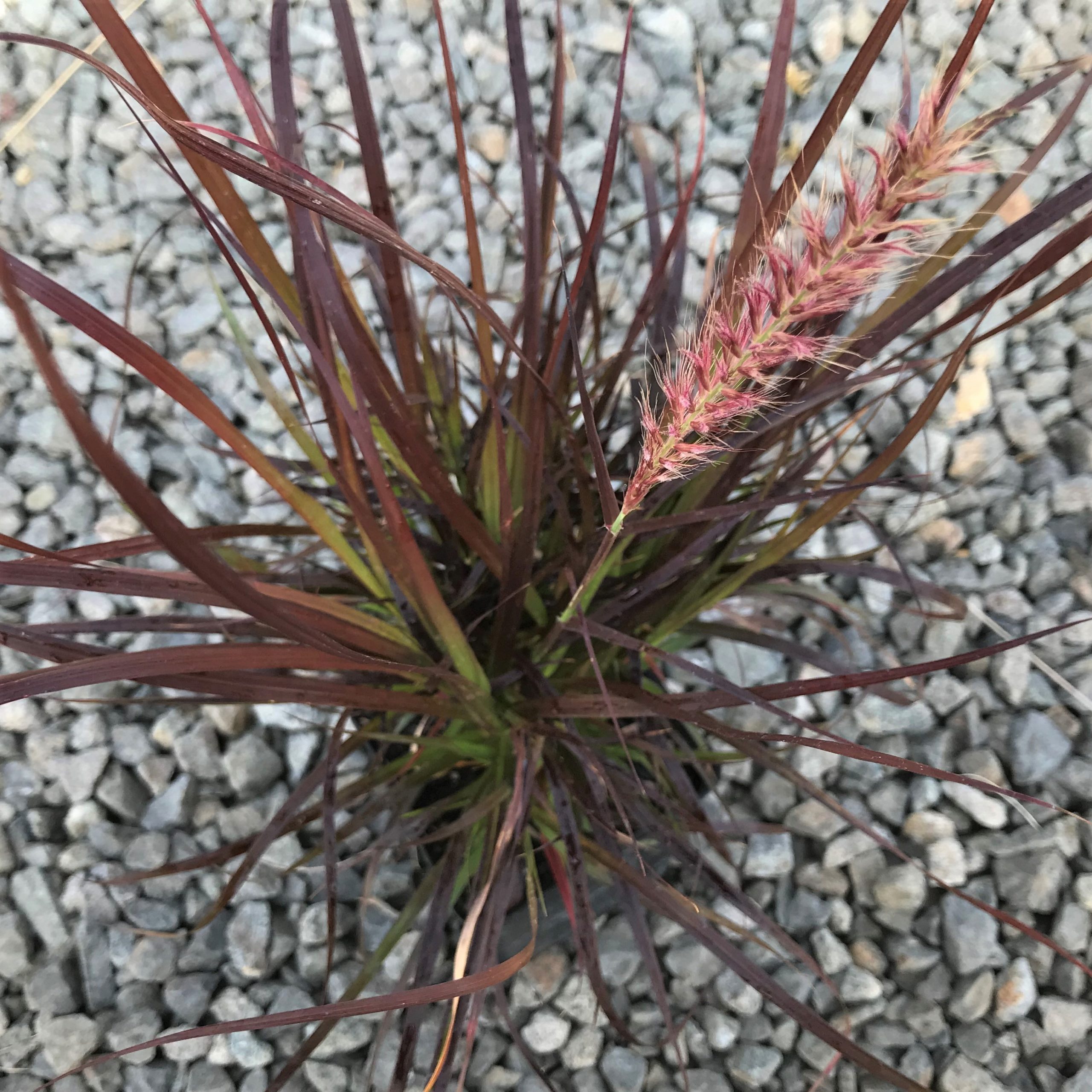
Pennisetum setaceum 'Rubrum' Purple Fountain Grass (4.5" Pot) Little Prince To Go
Care Grow in light, average, well-drained soil in full sun. Cut back previous year's foliage by early spring. Propagation Divide in late spring or early autumn. Sow seed in early spring at 55° to 65°F. Genus : Pennisetum. Plant Height : 1 to 3 feet. Plant Width : 1 to 3 feet. Zones : 10, 11, 8, 9. Uses : Containers, Ground Covers.
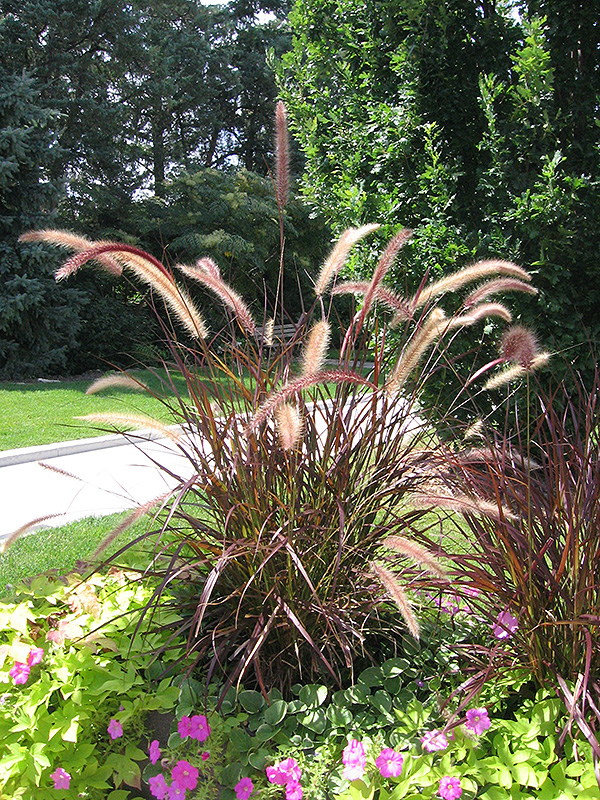
Purple Fountain Grass (Pennisetum setaceum 'Rubrum') in Oklahoma City Edmond Norman Moore
Growing Purple Fountain Grass as Perennial or Annual. The only determing factor as to whether you can grow Pennisetum setaceum Rubrum as a perennial is how cold your winters become. If you regularly get frosts - or worse, some snow cover - then growing fountain grass as an annual would be a far better choice.
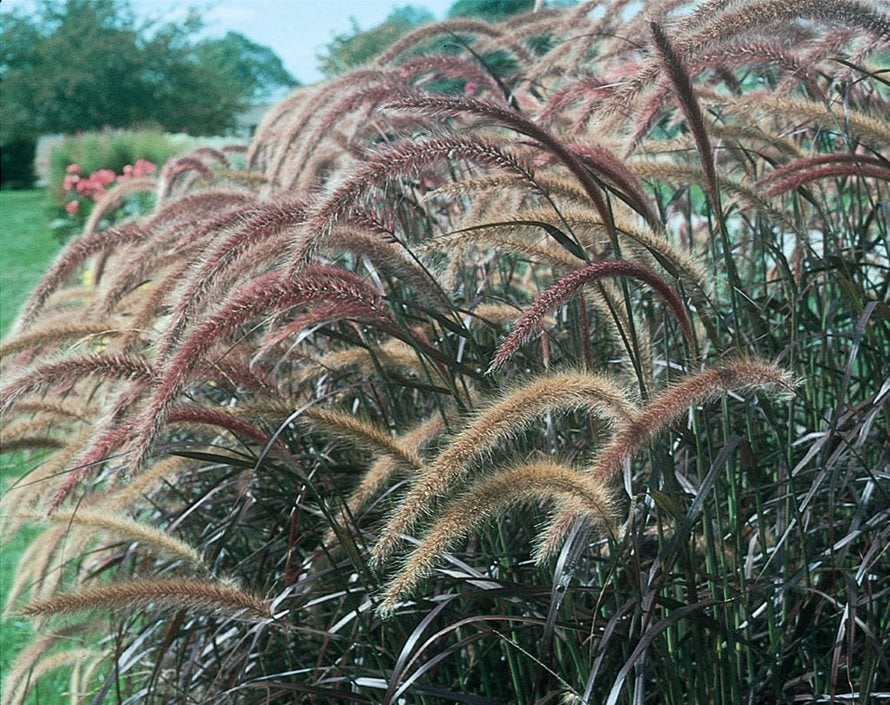
Purple Fountain Grass Garden Design
Description. 36-48" tall x 24-48" wide. Purple Fountain Grass is as versatile as it is reliable. Plants provide a contrast in texture and color ideal for repetition throughout the garden. Flower stalks appear mid-summer and remain to provide interest through the winter. Unlike other Pennisetum, Purple Fountain Grass does not reseed in the garden.

1 Gal. Rubrum Purple Fountain Grass21941 The Home Depot
North District vs Yuen Long live score and live streaming on May 21st, 2023 at 05:30 UTC time for Football Hong Kong 1st Division.
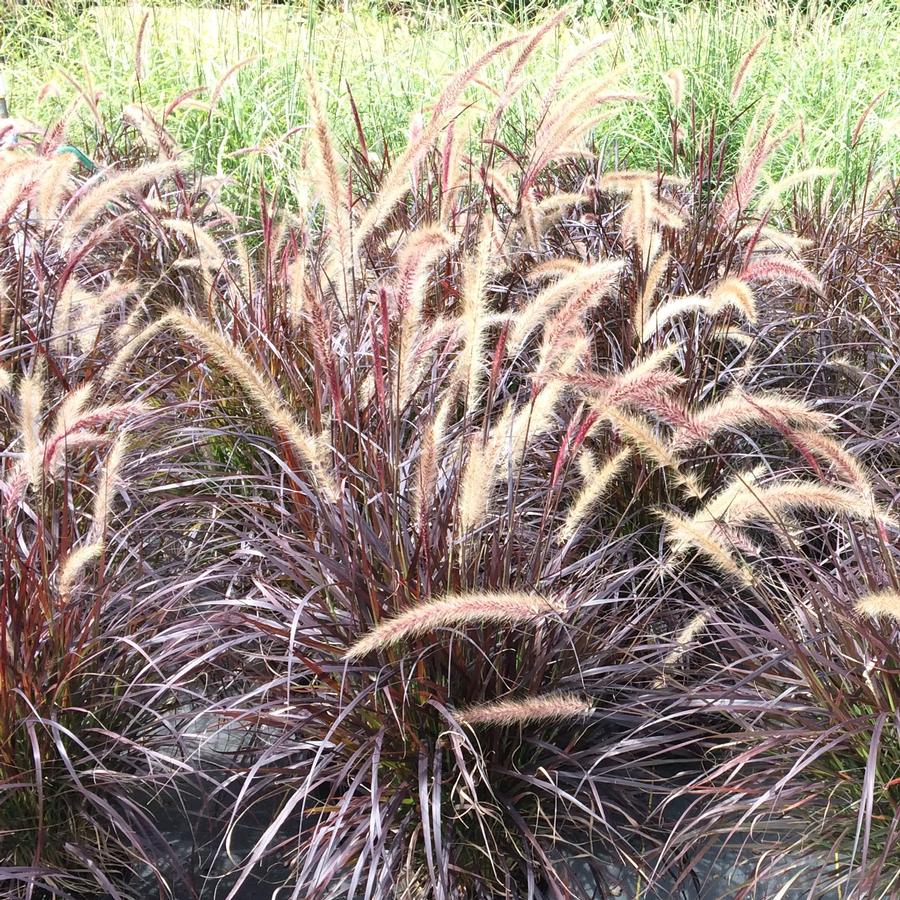
Tender Purple Fountain Grass Pennisetum setaceum 'Rubrum' from Saunders Brothers Inc
Purple fountain grass - Pennisetum setaceum "Rubrum" is an ornamental landscape grass known for its burgundy or purple leaf blades and soft, fuzzy-like flowers. Its foxtail plumes and striking burgundy foliage show up well when surrounded by contrasting plants. This herbaceous perennial grass is heat tolerant and grows well in poor soil.

Rubrum Purple Pennisetum Plant for Sale (Fountain Grass) Free Shipping
Types of Pennisetum . Pennisetum setaceum 'Rubrum': Known as purple fountain grass, this variety is famous for its deep purple foliage and soft purple and tan blooms.This is a tender perennial that grows in zones 9-11 but is often used as an annual. They grow to be 4 feet tall and wide.
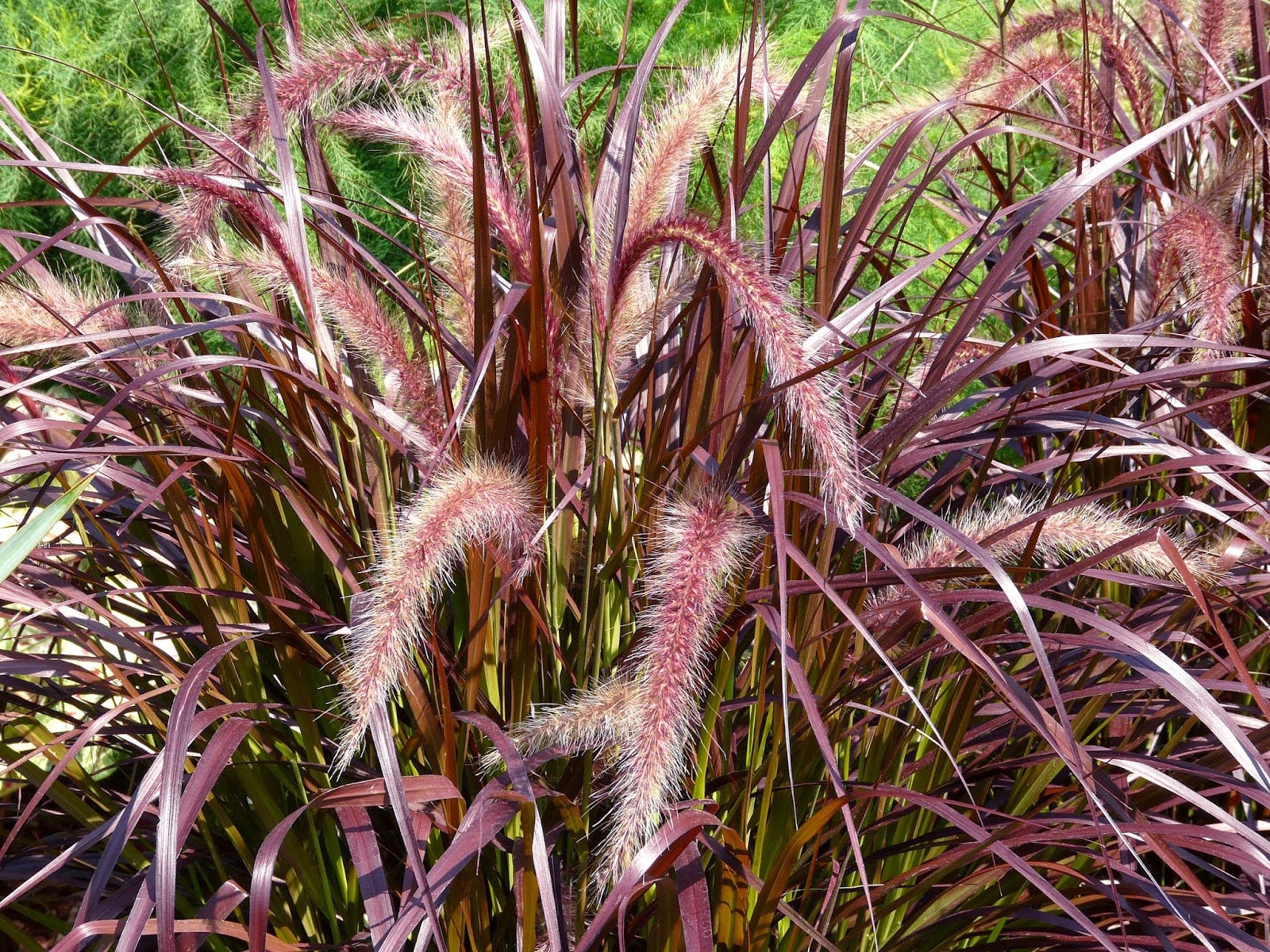
Pennisetum Setaceum 'rubrum' Purple Fountain Grass Etsy Australia
All Ornamental Grasses. Purple Fountain Grass (Pennisetum rubrum) - 5 Pack of Quart Pots. One of the most showy of any ornamental grasses we grow and offer, Purple Fountain Grass is one of a few that displays deep purple foliage throughout the season. In Zones 9 to 11 it is a hardy perennial plant. In Zones north of 9 it is an annual (lives 1.
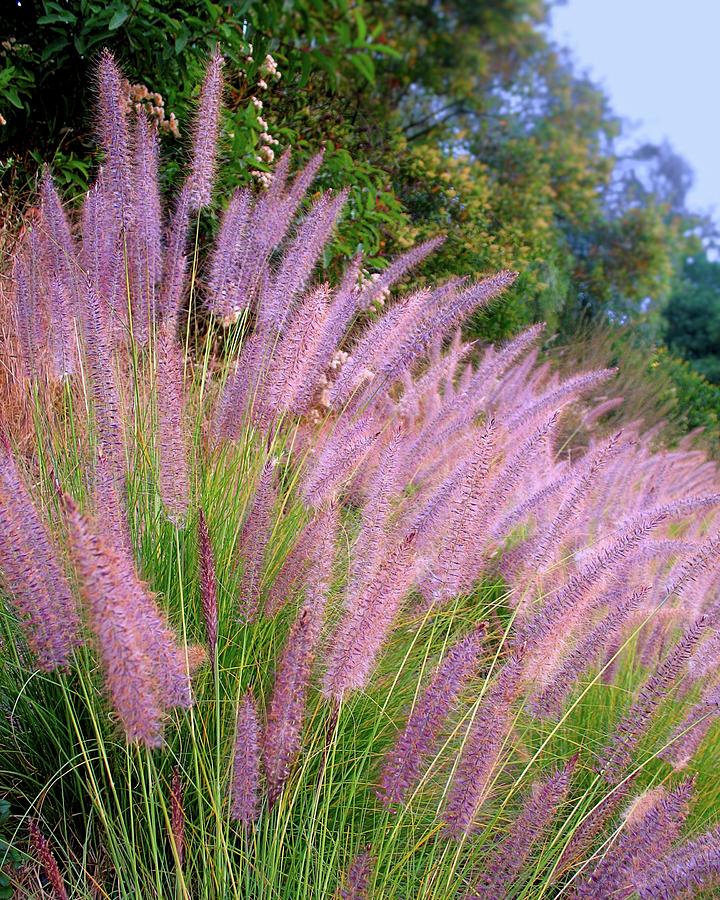
Purple Fountain Grass Photograph by Kieoh ABC Photography
Waves of gracefully nodding soft purple plumes arch up and out from burgundy-tinted foliage in true fountain grass form. This variety is especially dramatic in clusters, mass plantings, or along slopes. A favorite for fresh or dried arrangements. Pest and disease-free. "A Real Simple magazine - Top 10 goofproof Plant".
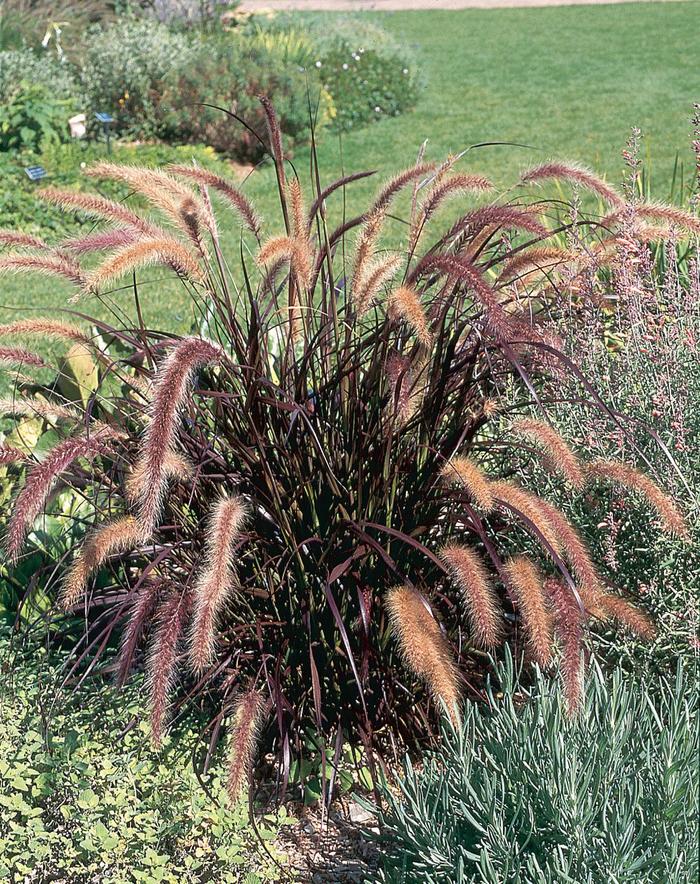
Pennisetum setaceum rubrum Purple Fountain Grass Bloomfield Garden Center
Description. A popular drought tolerant grass that forms a tidy, dense clump of purplish maroon blades topped with rose-red plumes. Beautiful as a landscape specimen or planted in groups. Unlike the species, this cultivar does not reseed. An herbaceous perennial grass in mild winter regions; provides quick annual color in any climate.
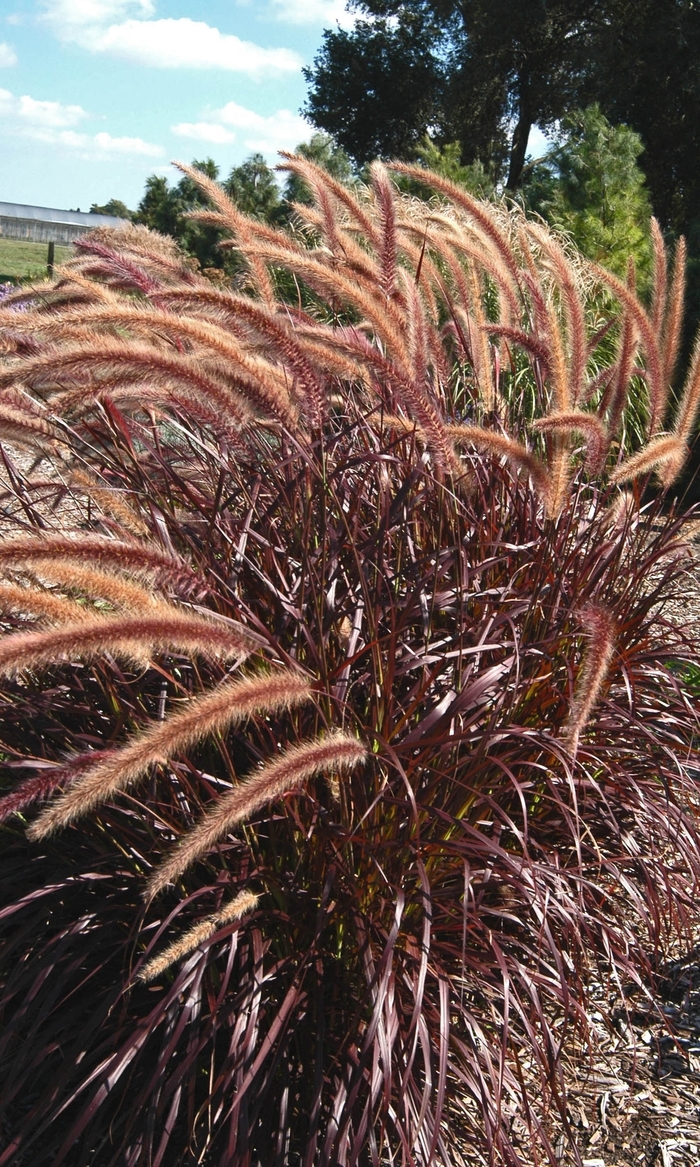
Pennisetum setaceum 'Rubrum' ' Rubrum Purple Fountain Grass' Graceful Grasses™ Jim Whiting
Red fountain grass is an ornamental grass that is used in the landscape for its reddish foliage and showy flowers (Figure 1). The leaves of this 3- to 4-foot-tall plant are narrow, curving, linear blades with a beautiful red cast. The purple-pink or copper colored inflorescence of red fountain grass sits atop a hollow, 3-foot-long, nodding.
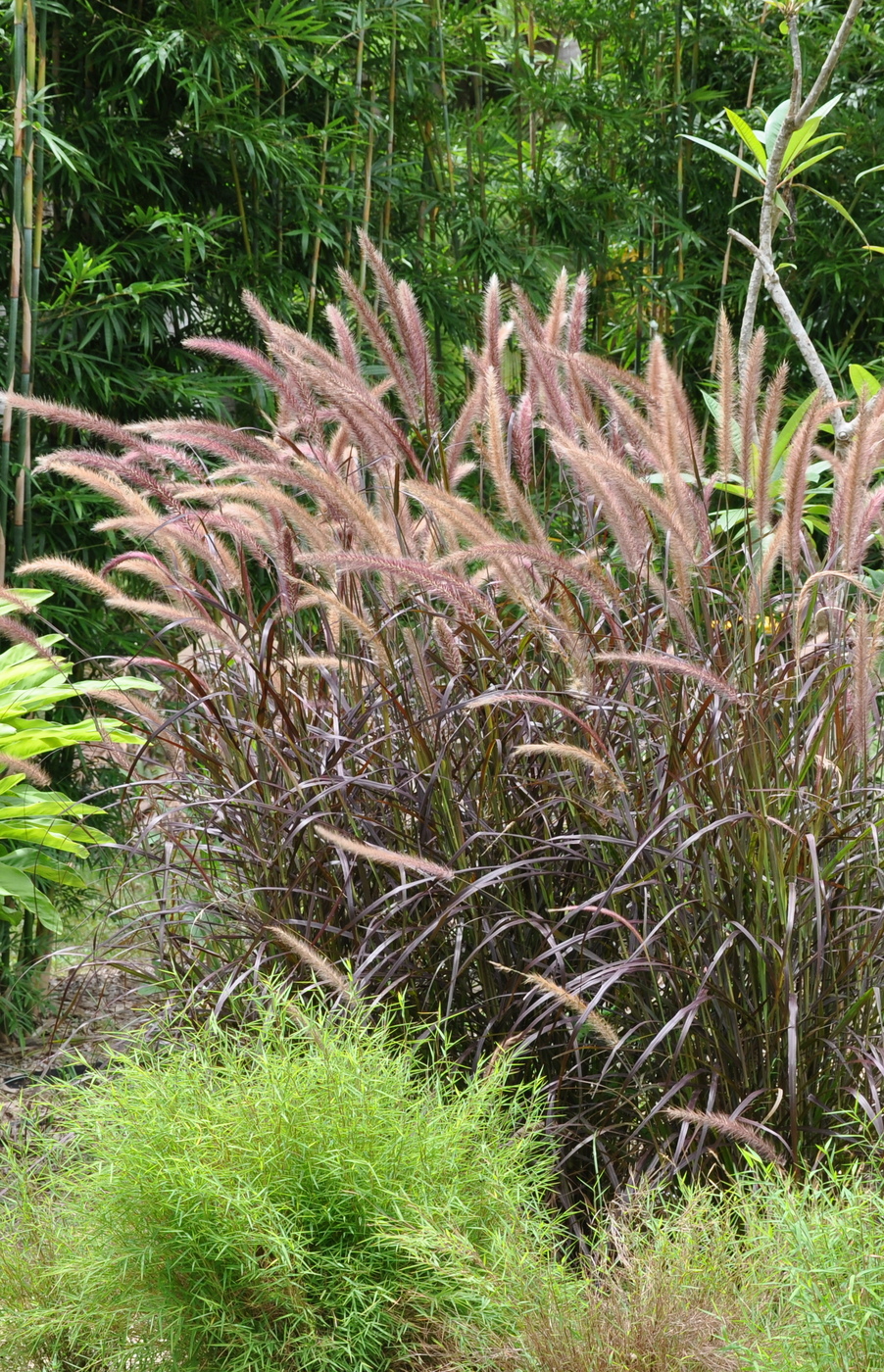
Pennisetum advena 'Rubrum' (Purple Fountain Grass)
Start seeds indoors in containers. Fill your containers with fresh, new potting soil. Then sprinkle the purple fountain grass seeds on top. Just a dusting of soil on top of the seeds is plenty. Water your freshly planted seeds until the soil in the container is evenly damp.

Purple Fountain Grass (Pennisetum 'Rubrum') Davenport Garden Centre
Purple Fountain Grass Purple Fountain Grass Features: An Overview. These plants belong to the Pennisetum genus that contains about 80 species of annual or perennial grasses. They share this genus with other spectacular species like P. clandestinum, P. glaucum, P. orientale, P. pedicellatum, or P. purpureum.
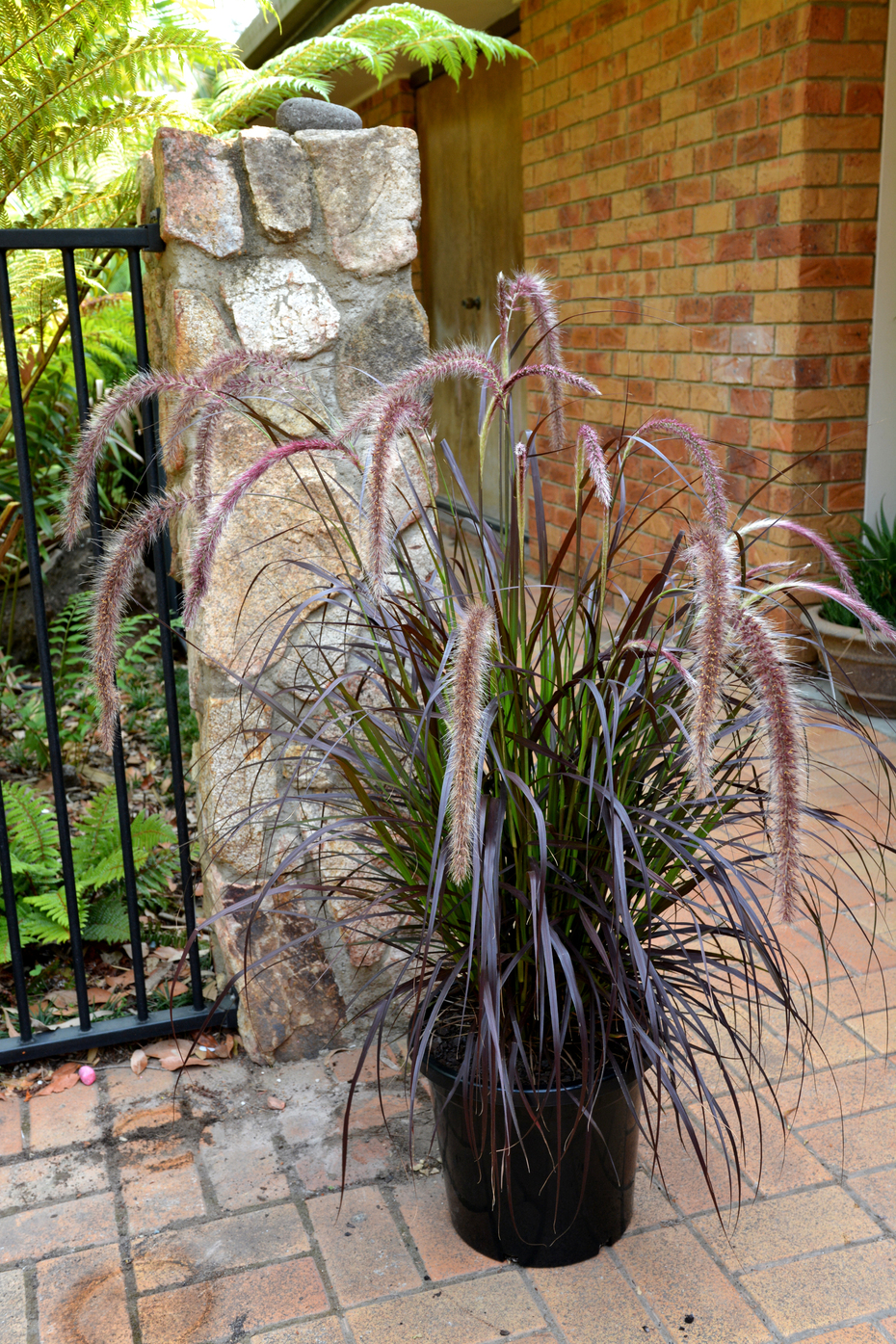
Pennisetum advena 'Rubrum' (Purple Fountain Grass)
Purple fountain grass, or Pennisetum setaceum 'Rubrum', belongs to the Poaceae family. This family is the fifth-largest plant family and it refers to grasses - which includes all cereal grasses, your 'typical' lawn grasses, and even bamboos.. Purple fountain grass is a beautiful plant that adds texture and splashes of - as you.
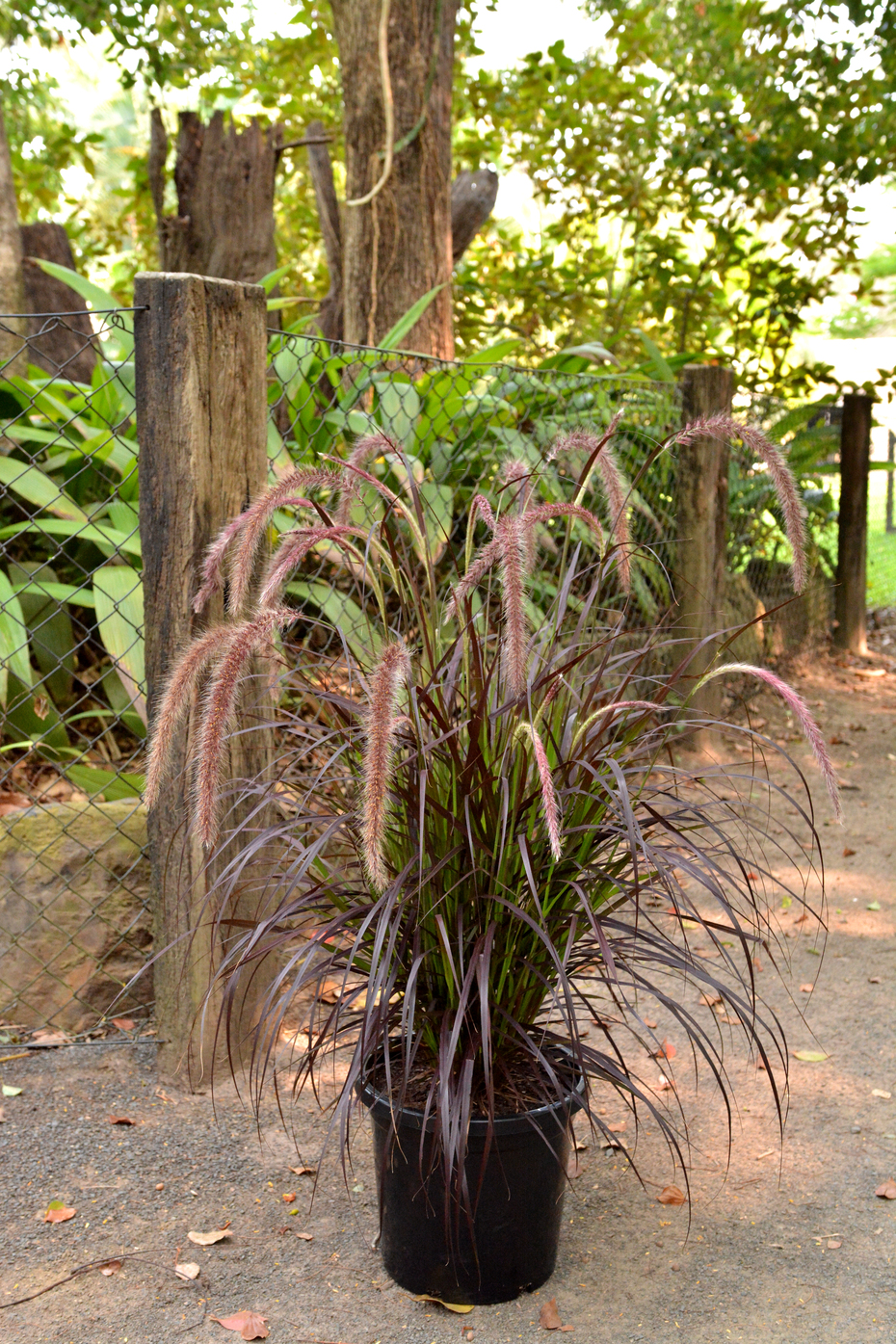
Pennisetum advena 'Rubrum' (Purple Fountain Grass)
About Purple Fountain Grass. While purple fountain grass is known as a perennial, it is actually considered a tender perennial. This ornamental grass cannot survive cold winters and is hardy only in USDA Plant Hardiness Zones 9 and warmer (though in Zones 7-8 it can sometimes reappear given adequate winter protection). Therefore, it is important that this be a consideration prior to planting.